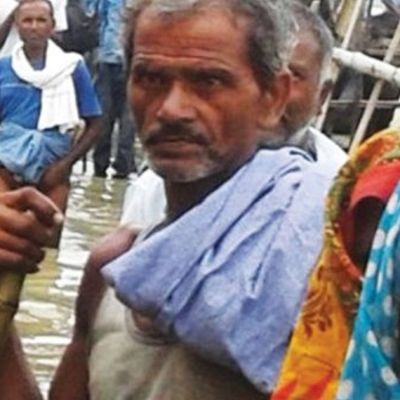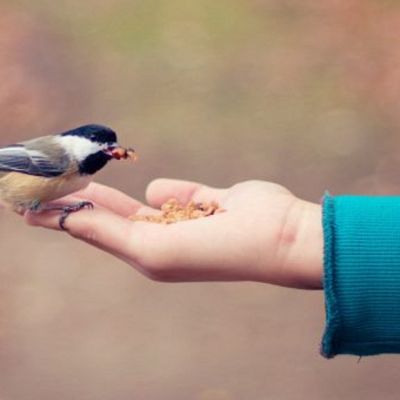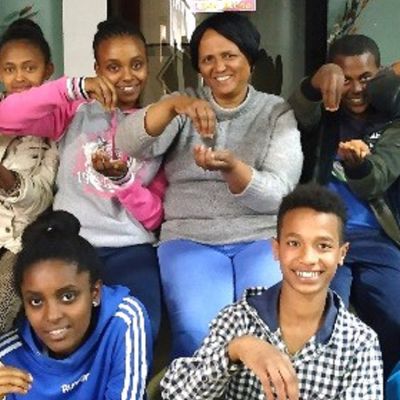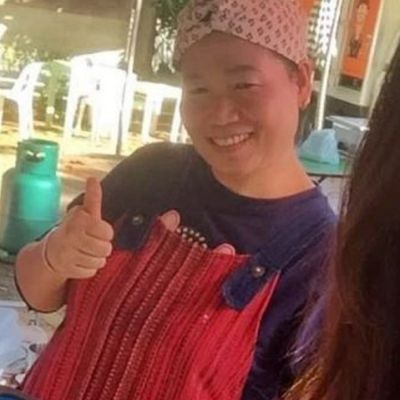Banner Image: Sarah Hong (far right)
Written by: Sarah Hong (Participant of CEDAR’s Exposure Trip 2018)
The world God first-created was in a stable and balanced peaceful condition, which illustrated Shalom. He gave us the responsibility to manage the land. Yet, we failed our task, destroyed the land and its eco-system and caused a lot of problems, such as climate change.
I joined the CEDAR’s exposure trip to Thai-Burmese border and rural northern Thailand in December last year. During the trip, my companions and I visited UHDP [1], CEDAR’s partner. UHDP understood God’s heart for reconciling relationships between human and other aspects, including the nature. Therefore, they adopted an agricultural principle that can sustain development, protect the nature and reconcile with the nature. They used natural fertilisers and adopted crop rotation to ensure a break for the land to restore its nutrients. Not only their harvests were better than other farmers, but they also reduced harm to the land. In their farms and lives, I found different ways of protecting the land, for example, wrapping food with banana leaves, producing pig feeds by blending salt, brown sugar syrup and shredded trunks, and making fertilisers for banana trees from pig faeces, which formed an eco-cycle.
The farming methods I learnt from UHDP might not be applicable in my life back in Hong Kong. Nevertheless, since I understood God’s heart for restoring relationships, reconciliation with the nature was inevitable in Shalom, and the fruitful effect of life and efforts under this principle, I started another action – plastic reduction.
Plastic is a substance that requires an extremely long degrading time. Its damage to the environment is obvious. In the past, my colleagues loved takeaway, and one takeaway breakfast was packed with 3 to 4 styrofoam packages. Hence, I decided to buy less takeaway, or prepare utensils and a lunchbox for myself. Frankly, it was very inconvenient to bring an extra lunchbox and do the cleaning afterwards. At the beginning, colleagues looked at me curiously, but gradually, they also started bringing their own lunchboxes and utensils. They said that they had been wanting to be more environmental friendly, but laziness or fear of others’ opinions hindered them.
Although my plastic reduction action was not anything big, it was still influential to people and the nature. I started with bringing my own utensils and lunchbox. I know I can do more gradually, for example, not using straws and plastic shopping bags. And my next goal would be: shop less!
[1]: UHDP’s full name is Upland Holistic Development Project.
Content of this issue
Written by: Edward Lai (Senior Communications Officer) The world experienced the hottest month ever in July [1]. In fact, 2015 to 2019 may have been the hottest 5 years in human history. [2] In recent years, the United Nations (UN) [3] has issued several warnings on the imminent peril of climate crises induced by human activities. Under the same climate crisis, the threats borne by the rich and the poor are totally different. As pointed out by the experts at the UN [4], the rich can use money to mitigate the impacts of global warming, but the poor are almost powerless. They are left to bear the brunt of rising temperature, such as drought, famine and infectious diseases….
Written by: Raymond Kwong (Chief Executive) Mankind is unique in God’s creation because we have been made in God’s image and likeness (Genesis 1:26). We are living beings (Genesis 2:7) and we have been granted stewardship to take care of all other forms of creation (Genesis 1:28-29; 2:15). These are mankind’s intended identities. Unfortunately, when sin enters the world, these identities are distorted. Our stewardship has been altered beyond recognition. Mankind’s role has morphed from stewards of God’s creation into owners, or even exploiters. God’s creation should have received mankind’s love and care, but now it has become an instrument for personal gain. This simply goes against God’s intention in Creation! Jesus Christ’s salvation is to enable mankind…
Written by: Edward Lai (Senior Communications Officer) What kind of person would you like to be? When discussing dreams with youths, despite where they live, they somehow think of being a doctor, pilot, lawyer, teacher or entrepreneur. Dreams may fade in a blink, but it may also be planted in hearts, awaiting to sprout. CEDAR’s Ethiopian partner [1] entered local poor communities, determined on discussing dreams, meanings and values of life with youths. Ethiopian youths are not different from other kids. They also face problems of identity during their growth: Who am I? Who do I belong to? Why did I come to this world? These questions point to the root: What is my outlook on life? Our Ethiopian partner…
Banner Image: Sarah Hong (far right) Written by: Sarah Hong (Participant of CEDAR’s Exposure Trip 2018) The world God first-created was in a stable and balanced peaceful condition, which illustrated Shalom. He gave us the responsibility to manage the land. Yet, we failed our task, destroyed the land and its eco-system and caused a lot of problems, such as climate change. I joined the CEDAR’s exposure trip to Thai-Burmese border and rural northern Thailand in December last year. During the trip, my companions and I visited UHDP [1], CEDAR’s partner. UHDP understood God’s heart for reconciling relationships between human and other aspects, including the nature. Therefore, they adopted an agricultural principle that can sustain development, protect the nature and reconcile…






